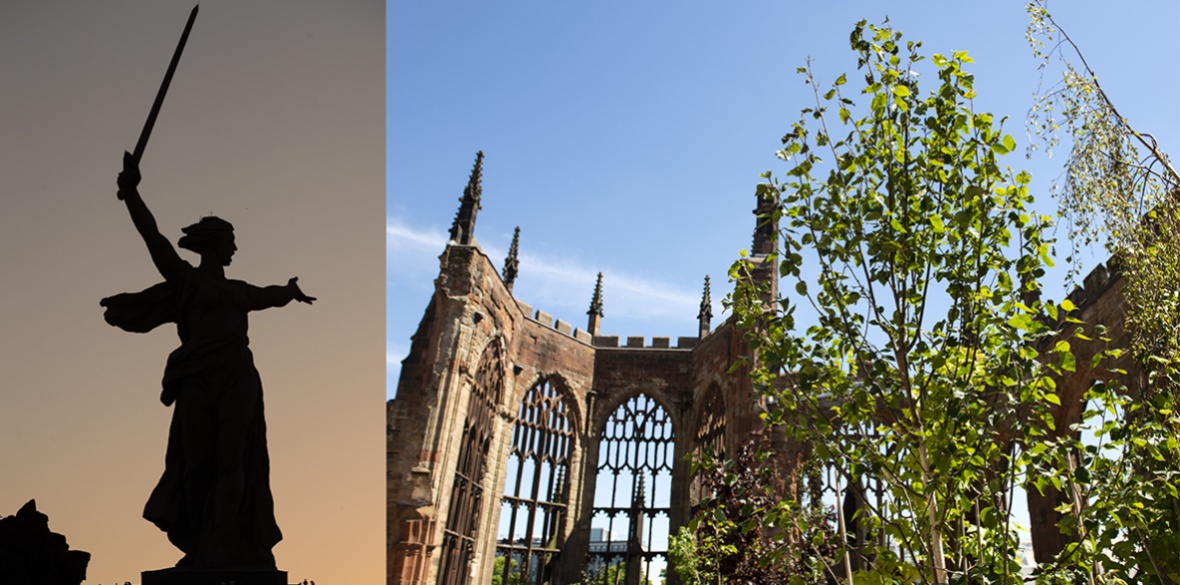This is the last article you can read this month
You can read more article this month
You can read more articles this month
Sorry your limit is up for this month
Reset on:
Please help support the Morning Star by subscribing here
THE City Twinning Movement was really started after the second world war. Other cities had twinned before, but the movement was galvanised by the demand for peace made by ordinary citizens that the horrors of the war never happened again.
This of course hasn’t happened. There have since been major wars, and it is reported that there are around 40 ongoing wars and conflicts at the moment.
Despite these conflicts, the twinning movement has stood strong. Coventry, my home city for the last 40 years, is now twinned with 26 other towns and cities, and this number has grown since the last world war.
The three overlapping reasons are solidarity, support and reconciliation.
Coventry is twinned with cities in all habited continents and the twinning has stood the test of war — both hot and cold — and the unlawful wars and actions of the countries where these cities and towns are based.
In 2021, Coventry, in association with its very first twin city Stalingrad (now Volgograd), held a year-long celebration to mark its links with 26 twin cities.
I attended with many others, including councillors, a joint event at a local theatre, which was inspirational. The demand for peace was loud, clear and heard.
It is often stated that Coventry became the pioneer of the twinning movement when it made its initial contact with the suffering city of Stalingrad during the second world war.
Coventry, which had been devastated by aerial bombing during the war, understood the pain of Stalingrad, which suffered more than a million casualties during the fierce battle of Stalingrad in 1942-43.
On October 6 1941 The Coventry Telegraph reported that women of Coventry decided to send a message of support to the women of Stalingrad.
This gesture marked the modest beginning of friendship between the two cities, united by the shared experience of suffering.
A Stalingrad paper wrote about these messages of support on November 13 1941, the day before the first anniversary of the Coventry Blitz.
The letter from the women of Coventry, sent in October 1941, was reciprocated by the women of Stalingrad — 36,000 women in 1942 wrote, stating: “We send our warmest greetings to you women of Coventry valiant British Patriots. In the days of decisive battles on the fronts of the great war of liberation, we Soviet women appreciate the feelings of friendship and solidarity which you our comrades in the struggle have expressed.
“Like all women of the Soviet Union, the women of Stalingrad are doing all in their power to help the Red Army defeat the German-Fascist troops in 1942.
“Our husbands, sons and brothers have taken up arms to defend our beloved fatherland. Mothers, wives and sisters have taken their place in plants and factories, on the fields of collective farms, in laboratories and institutes, in construction of defence lines and in ARP defence.
“Women are producing tanks and motors, smelting steel and working in lumber camps. In storms they go out to sea and fight … Long live the women of Coventry who are playing a valiant part in the struggle against fascism.”
In March this year the city councillors voted unanimously to suspend the city’s link with Volgograd.
No consultation took place outside the council chambers, which is at best regrettable. And while the motive was, like many, to cut all links with Russia after the invasion of Ukraine by Vladimir Putin’s forces against the wishes of significant numbers of Russian people.
It is a grave error, as the chance of making the case for peace can only be done by peoples below governments and their military backers.
Coventry has now lost its opportunity, and it is contrary to its objective as a City of Peace and Reconciliation. At this time it is vital that the demand for peace is made loudly.
Coventry could have made this demand, like a number of other councils that were or remained twinned with Russian cities, but they chose to rule out this option.











